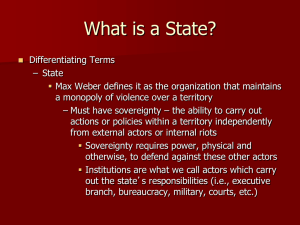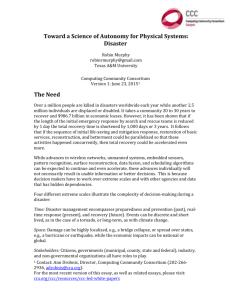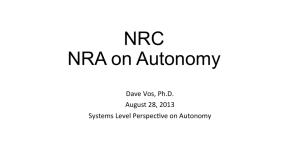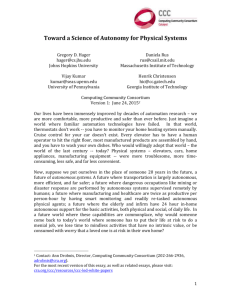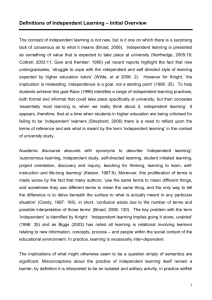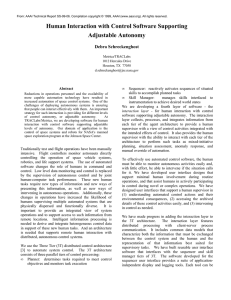File
advertisement
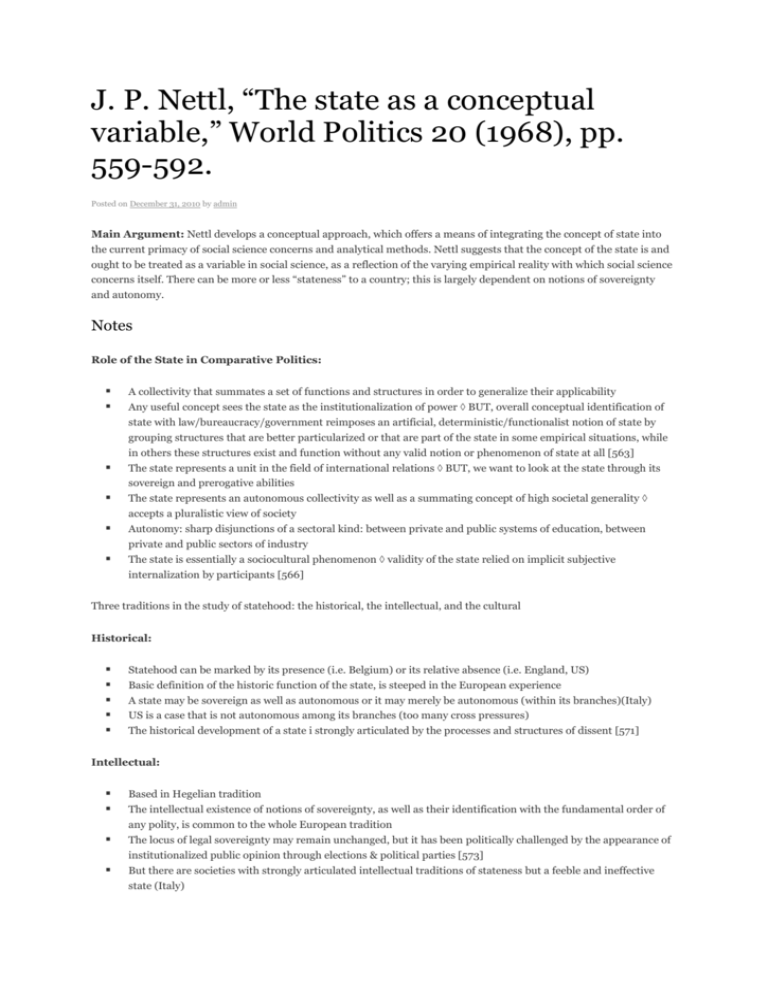
J. P. Nettl, “The state as a conceptual variable,” World Politics 20 (1968), pp. 559-592. Posted on December 31, 2010 by admin Main Argument: Nettl develops a conceptual approach, which offers a means of integrating the concept of state into the current primacy of social science concerns and analytical methods. Nettl suggests that the concept of the state is and ought to be treated as a variable in social science, as a reflection of the varying empirical reality with which social science concerns itself. There can be more or less “stateness” to a country; this is largely dependent on notions of sovereignty and autonomy. Notes Role of the State in Comparative Politics: A collectivity that summates a set of functions and structures in order to generalize their applicability Any useful concept sees the state as the institutionalization of power BUT, overall conceptual identification of state with law/bureaucracy/government reimposes an artificial, deterministic/functionalist notion of state by grouping structures that are better particularized or that are part of the state in some empirical situations, while in others these structures exist and function without any valid notion or phenomenon of state at all [563] The state represents a unit in the field of international relations BUT, we want to look at the state through its sovereign and prerogative abilities The state represents an autonomous collectivity as well as a summating concept of high societal generality accepts a pluralistic view of society Autonomy: sharp disjunctions of a sectoral kind: between private and public systems of education, between private and public sectors of industry The state is essentially a sociocultural phenomenon validity of the state relied on implicit subjective internalization by participants [566] Three traditions in the study of statehood: the historical, the intellectual, and the cultural Historical: Statehood can be marked by its presence (i.e. Belgium) or its relative absence (i.e. England, US) Basic definition of the historic function of the state, is steeped in the European experience A state may be sovereign as well as autonomous or it may merely be autonomous (within its branches)(Italy) US is a case that is not autonomous among its branches (too many cross pressures) The historical development of a state i strongly articulated by the processes and structures of dissent [571] Intellectual: Based in Hegelian tradition The intellectual existence of notions of sovereignty, as well as their identification with the fundamental order of any polity, is common to the whole European tradition The locus of legal sovereignty may remain unchanged, but it has been politically challenged by the appearance of institutionalized public opinion through elections & political parties [573] But there are societies with strongly articulated intellectual traditions of stateness but a feeble and ineffective state (Italy) Distinct and autonomous state norms and attitudes, as well as the growth of correspondingly distinct collectivities, has been in the development of the state bureaucracy Cultural: To understand the concept of the state, must inquire to what extent notions of state have become incorporated in the thinking and actions of individual citizens in different societies Can be multiple subcultures: constitutional culture, elitist culture that may contribute more or less to the development and crystallization of stateness [579] Functions of the State: Public administration The institutionalization of sovereignty: institutionalization of social cleavage; usually means a multiparty system In “stateless states” parties as substituting mechanisms for the legitimacy function of the state The quantitative variable of stateness has considerable influence on the form and strength of parties The concept of state implies a distinct tendency toward sectoral autonomy [582] Regulatory and advisory bodies act as emanations of the state Sociointellectual consciousness of responsibility norms, strongly marked in any elitist society, largely compensates for the absence of any accepted area of autonomous state action Law Enforcement: law may have more or less autonomy from the workings of the state Social Goal-Attainment & Representation: does the state fulfil either goal-setting or goal-attainment functions
